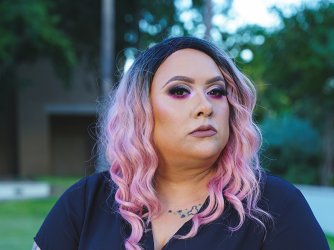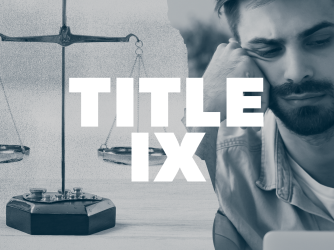Table of Contents
Berkeley Claims Control of the Word ‘California’ But Permits Student Group to Use It
The University of California at Berkeley restricts student organizations from using the words "California," "Cal," and "Berkeley" in organization names without prior permission. Like many colleges and universities across California, Berkeley is enforcing unconstitutional provisions that prevent the use of school names in a wide variety of contexts, even when there is no confusion between private speech and official university speech. These provisions chill speech across the state. With FIRE's help, a longstanding Berkeley student publication, California Patriot, is now allowed to register under its actual name.
Berkeley's rules for student organization names include bans on the use of certain words:
The following names and corresponding variations may not be used in your student group name*:
- UC Berkeley
- California
- Cal
- UC
- UCB
'Berkeley' can be used in your student group name only if it is used as a reference to geographic location, such as:
- at Berkeley
- of Berkeley
*Groups established prior to this policy's implementation can use these terms in their student group name.
The California Patriot, which had not registered before as a Berkeley student organization, thus sincerely believed that it could not register under its own name, registering instead as The Patriot Group.
FIRE wrote Berkeley Chancellor Robert J. Birgeneau on March 19, noting a variety of Berkeley policies that similarly—and unconstitutionally—restrict speech. For example, Berkeley's "UC Berkeley® Trademark Guidelines and Requirements" are said to "apply to the use of campus Trademarks (‘Marks') on products, in all forms of media, such as print advertising or the Internet, and include use of Internet domain names." (Emphases added.) These guidelines and requirements "pertain to persons and organizations affiliated with the campus as well as to outside entities and agencies," and state, in relevant part:
b) It is unacceptable to combine "Berkeley" with "Bears," "Golden Bears," "Athletics," or any athletic team designation (i.e., "Berkeley Football"). The athletic teams should only be referred to as "California Golden Bears," "Cal Bears," or "University of California Golden Bears".
[...]
d) The University's marks should always present a positive image.
[...]
f) [...] The University Seal may not be defaced, altered, overprinted, or dismantled in any manner.
g) University marks are not to be associated with alcohol, tobacco, condoms, gambling products, items which could be used to maim or kill, or that could present a high liability exposure. For example, University marks should not be used in conjunction with knives, guns, or cigarette lighters.
h) The University's marks will not be approved for use in association with certain other mark(s), words or phrases, for example: the Playboy bunny, Coed Naked, profanity, ethnic/gender/religious slurs, pro-hazing designs or designs that are deemed to be in poor taste. Further, art that is in some way degrading or demeaning, or reflects poorly on the UC Berkeley image, will not be approved. [Emphases added.]
Although some people may well think that these provisions only apply to previously licensed use of Berkeley's alleged trademarks, the policy does not say so. As a result, many other people are likely to self-censor. This is so especially because another Berkeley policy warns that violation of such rules is a criminal misdemeanor under California Education Code section 92000.
That part of the California Education Code is likely unconstitutional, too. As we wrote,
[S]ection 3 even prohibits "announc[ing]" the name of Berkeley at public meetings and prohibits display of the name of Berkeley in "any kind" of "propaganda" regarding "any political, religious, sociological, or economic movement, activity or program." To ban the mere mention or display of Berkeley's name in such political contexts is a severe violation of the First Amendment, banning precisely the kind of political speech at the heart of the First Amendment's protection.
University of California, Los Angeles (UCLA), in fact, applied section 92000 of the Code in 2009 to threaten an innocent former student who had started the obviously unaffiliated protest website, ucla-weeding101.info. FIRE intervened and protected the former student's First Amendment right in the case.
A similarly unconstitutional part of the Code applies to the state's community colleges--and it has been enforced at Santa Rosa Junior College, as FIRE noted in 2009 in another victory for freedom of expression after FIRE intervened.
Berkeley is avoiding the real issue, but at least Cal is going to let California Patriot register under its actual name. On April 6, FIRE received a response from Senior Counsel Michael R. Smith, announcing that "[t]he group may proceed with registration under its full name." (At that point, Berkeley and FIRE were calling the group "The California Patriot." We presume that the absence of the word "the" will not present a problem as the group formally applies for the name change today.)
The reason provided by Smith for accepting the group name is that "the name 'California' in The California Patriot's title poses small likelihood of confusion and would have allowed the group to register" under its real name. Yet, if this is the case, why is "California Public Speaking Group" given as an example of a banned student group name? Is it because the university might have public speaking groups on campus, but nobody would confuse Berkeley with having patriots? The university's logic is unclear on this point.
Furthermore, and more importantly, Berkeley failed to address any of the unconstitutional, speech-chilling policies FIRE quoted in our letter. Berkeley has a lot more work to do to preserve First Amendment rights on campus.
Recent Articles
FIRE’s award-winning Newsdesk covers the free speech news you need to stay informed.


FIRE statement on campus violence and arrests

BREAKING: New Title IX regulations undermine campus free speech and due process rights
